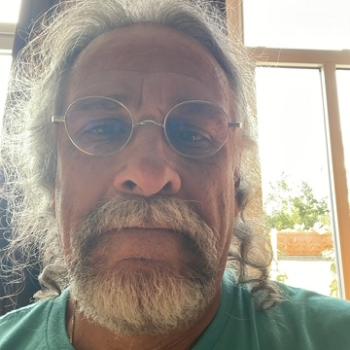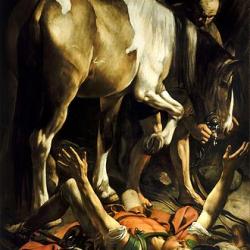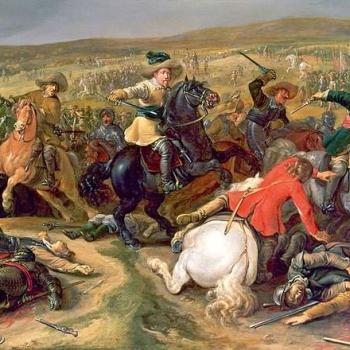I meet Sam, a tall 21-year-old with bushy eyebrows, in the British Library coffee shop near University College London, where he is a third-year undergrad studying psychology. Sporting a newly grown delicate beard, Sam wears his brown wavy hair almost shoulder length and flashes a charming smile. Like his uncle Ash, Sam hopes to parlay his psychology degree into a career as a professional filmmaker and already has a couple of films under his belt. His rap video, Blasphemy, makes fun of religious rituals in Judaism, Islam, and Christianity, while his most successful video to date, We Drink Tea, was created in response to Lazy Sunday, a digital short starring Andy Samberg that aired on Saturday Night Live and satirizes white yuppies in New York City. We Drink Tea, which mocks British idiosyncrasies and is laced with profanity, literary references to C.S. Lewis, A.A. Milne, and J.K. Rowling, has been viewed by an estimated million people online.
Sam’s sister Kate, 18, is a singer-songwriter in the folk tradition who has just released her first compositions on MySpace. She and Sam acknowledge the role of their extended family in fostering their artistic impulses. “To have all that creativity [around you] is incredibly inspirational,” says Sam. His sister is especially fond of family Hanukkah parties. “They are very musical, especially when we get the whole family together with my cousin Erran and everyone singing their own tunes in harmony,” she says. “It gets very big and very fun.”
Not all Baron Cohens are public figures. Simon’s older brother, Daniel, is an educator who uses theater and the arts to help people tell their stories in regions torn apart by war or social strife -- in Northern Ireland during “the Troubles,” in South African townships during apartheid, in Gaza during the intifada, and currently in Brazil. Simon’s sister Aliza is an acupuncturist and founder of an alternative health clinic in London. Erran and Sacha’s brother Amnon is a computer scientist living in London.
The entire Baron Cohen clan is mum about Sacha’s private life, which he works hard to keep separate from his public one. He has said that he doesn’t think “it helps people appreciate the work or the comedy or make me any funnier if they know what’s going on at home.” Sacha is reported to be close to family and old friends, especially those from his days at Habs, several of whom are close artistic collaborators. His wife, Isla Fisher, is an actress known for comedic performances in Wedding Crashers and Confessions of a Shopaholic. The couple married in 2010 after a six-year engagement, during which she converted to Judaism. Their daughter Olive was born in 2007.
His new family may be one reason that Sacha has been moving away from his triumphant trio of faux journalists. In his determination to take his characters into extreme real-life situations, he has had close calls. In Bruno, the rowdy spectators at a “cage fight” became enraged when Sacha, portraying Bruno, passionately kisses another man. Sacha’s safety was compromised when angry audience members began throwing chairs and other objects at him and looked ready to lynch him. “He is risking his life making these movies,” Erran says. “That’s obviously a worry for any member of his family. He’s got a kid now. Some of those scenes in Bruno are incredibly powerful partly because it’s so dangerous to do it,” says Erran.
Just as fame caught up with Sacha in Britain, making it impossible for him to pose as an unknown journalist with celebrities, it has caught up with him in the United States. He has announced that he will be shifting to scripted movies and is currently in production with Martin Scorcese’s 3-D film set in 1930’s Paris, The Invention of Hugo Cabret, to be released in December 2011. He is also starring in a movie that his agent describes as an “untitled goat herder film” in which he is said to play both a goat herder and a deposed foreign dictator who gets lost in the United States.
The United States is also where the real Sacha has made his home for now. On the other side of the ocean, Erran remains in north London where the brothers grew up. He is raising his family there and, like Sacha, tries to maintain the traditions of the generations before him. “Friday nights are still an important family event,” Erran says, noting that he sends his children to Jewish day school.
At the same time he hopes to improve on a few traditions from his childhood, such as boring Hanukkah songs. In 2008, Erran released Songs in the Key of Hanukkah, in which the old stand-by “Dreidel, dreidel, I made it out of clay” acquires a Balkan gypsy hip hop beat. In the album’s music video, Erran plays one of two Hasidic Jews who gamble pound-notes in a dreidel game, spray-paint Hebrew graffiti, and break into joyful dances. The dreidel game is played on a rooftop in east London near the neighborhoods where immigrant Jews once lived. Erran seems no more concerned about playing down his Judaism than his great-grandfather Chaim, who made sure his new countrymen would know he was a Cohen. Says Erran: “London is a good place to be a Jew.”
This article was first published at Moment Magazine and is reprinted with permission.
Sarah Glazer is a London-based journalist. Her articles have appeared in The New York Times and The Washington Post. She is a contributing writer for CQ Researcher and CQ Global Researcher.




